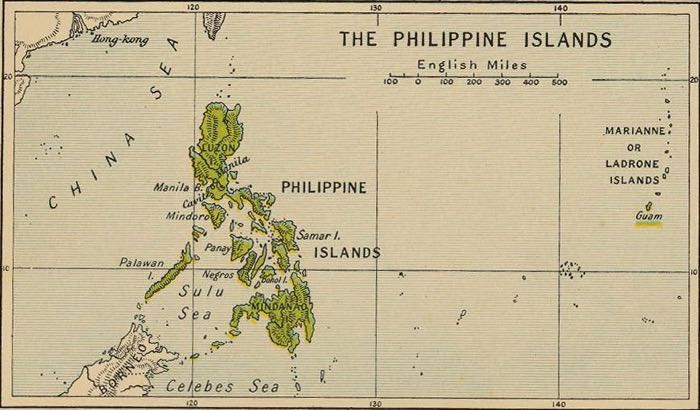Distant Possessions: The Parting of the Ways
Reviewed date: 2007 Mar 21
In this 1898 essay, Andrew Carnegie addresses the top issue facing the United States: "Shall we attempt to establish ourselves as a power in the far East and possess the Philippines for glory?" Carnegie offers three reasons against this course of action: 1) imperialism costs money, 2) imperialism violates the principle of liberty and self-governance upon which the United States is founded, and 3) imperialism threatens the security and safety of the United States by bringing it into conflict with other colonial powers.
First, though, Carnegie draws a distinction between colonies and dependencies. A colony is defined by populating the land with one's own people, as in the case of Britain in Australia and Canada. A dependency is a foreign land that is ruled by but not populated by one's own people, e.g., Britain in India. Carnegie offers much praise to the British, declaring "no nation that ever existed has done so much for the progress of the world," but acknowledges that the time of empires has passed.
Imperialism costs money: Imperialism is outdated because it is not necessary for trade. Carnegie offers as proof the fact that the United States's exports are the greatest in the world--American goods are sold around the world, despite the absence of any US colonies. Far from being necessary to trade, colonies actually cost the mother country financially: Spain's rule over the Philippines netted them nothing, and eventually cost them a great deal.
Imperialism violates American principles: Carnegie draws a parallel between the Philippine struggle for independence from Spain and the American Revolution: "The aspirations of a people for independent existence are seldom repressed, nor, according to American ideas hitherto, should they be. If it be a noble aspiration for the Indian or the Cuban, as it was for the citizen of the United States himself, and for the various South American republics once under Spain, to have a country to live and, if necessary, to die for, why is not the revolt noble which the man of the Philippines has been making against Spain?" To establish rule over the Philippines would be to reject the principles upon which America is founded.
Imperialism theatens American safety: By virtue of geography, America is relatively safe from external threats.
To-day two great powers in the world are compact, developing themselves in peace throughout vast conterminous territories. When war threatens they have no outlying possessions which call never be really "possessed," but which they are called upon to defend. They fight upon the exposed edge only of their own soil in case of attack, and are not only invulnerable, but they could not be more than inconvenienced by the world in arms against them. These powers are Russia and the United States. ...
We repeat, there is no power in the world that could do more than inconvenience the United States by attacking its fringe, which is all that the world combined could do, so long as our country is not compelled to send its forces beyond its own compact shores to defend worthless possessions. If our country were blockaded by the united powers of the world for years, she would emerge from the embargo richer and stronger, and with her own resources more completely developed.
This natural geographical advantage, however, is lost if America must defend colonies around the world. A relatively small military is adequate to defend the continental homeland, but imperialism requires the ability to project force anywhere in the world. An imperial America must field a navy and army equal to the combined strength of the European colonial powers, which will be extraordinarily expensive.
Carnegie argues well, and although America did not heed his advice, I find myself agreeing with almost everything he says. Imperialism has cost the US money, it has violated American principles, and it has required the US to field a world-dominating military at extraordinary expense.
